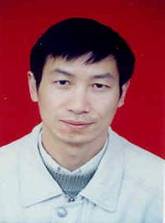Dr. Liang-Jian Zou
Research Laboratory of Computational Materials Sciences, Institute of Solid State Physics
Chinese Academy of Sciences
zou@theory.issp.ac.cn

Abstract: To investigate the interplay between metal-insulator transitions (MIT) and magnetic transition in multi-orbital correlated electron systems, numerical algorithms are utilized to solve the Kotliar-Ruckenstein slave-boson mean-field solutions through integrating pattern search method, generalized Lagrange multiplier method and Rosenbrock method. After validating our algorithm, we first apply the method to study the correlation effect on the three orbital Hubbard model for NaxCoO2 , and clearly show that the small Fermi surface pockets of mostly e'g character vanish for x=1/3 and strong Coulomb correlation. We then explore the influences of spin correlations on multi-orbital MIT and orbital selective Mott phase (OSMP) in asymmetric two-orbital Hubbard models, and the roles of electronic correlation in iron pnictides. We find at half filling, the OSMP is completely suppressed, the system undergoes a paramagnetic (PM) to Slater insulator and then to Mott-Heisenberg insulator. Away from half-filling an AFM OSMP can be stable. The competition of crystal field splitting and Hund's rule coupling in magnetic MIT at half filling may lead to an orbital insulator, driving the low-spin to high-spin transition. Application on two-orbital and three-orbital models for iron pnictides also produces many interesting results.
Location: 606 conference room
Date and time: August 25th, 2011 10:30 A.M—11:30A.M


